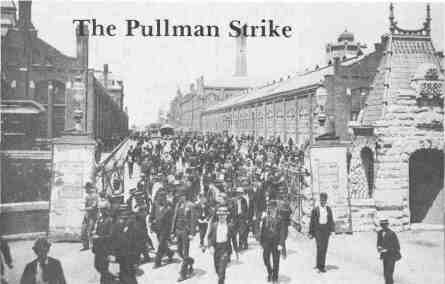Happy Labor Day (Whatever that Means)

Proposals for updating this holiday
It is Labor Day season once again. For most Americans, Labor Day represents the end of the summer, the last holiday before the three-month drought of school and/or work. Like most Monday holidays, it also represents a chance for us Americans to perform our patriotic duty of either having a barbeque or going shopping. There is nothing more American, after all, than consuming meat products cooked in the great outdoors or looking for some stuff at 60% off.
Many of us, however, know next to nothing about Labor Day's historical origins or what the hell it is that we are actually celebrating. Some probably think that the term "Labor" in Labor Day is a reference to the opportunity not to work, a national day off that we have earned through our hard labor. Others might think that it is a celebration of women giving birth or a reference to the hard labor of mowing your lawn in preparation for the barbeque.
Having recently done a little research on the origins of the holiday, I was struck by how outdated it has become. Labor Day was first celebrated in the 1880s in an increasing number of states before it eventually became a national holiday in 1894. As the name indicates, it became a holiday through the efforts of some labor unions, and it was designed to be a day to commemorate their efforts. Ironically enough, it was signed into law by President Cleveland shortly after the Pullman Strike, one of the more violent labor disputes in American history, partly as an effort to appease leaders of the labor movement after government security forces had killed several people during the strife.
Today in the United States, only 11% of workers are members of unions, and these union members are far outnumbered by people who blame unions for many of our nation's ills: outsourcing or outright loss of jobs, the coddling of incompetent employees, making American companies less competitive internationally, and playing a major role in pumping money into politics in order to buy off (union-friendly) politicians. If only we could go back to the good old days before the government, often under union pressure, forced companies to follow onerous workplace regulations, the economy would take off, with all of those high quality manufacturing jobs in overseas sweatshops coming back to America where they belong.
Since union membership today is so rare, and so many Americans look at what's left of the union movement in very negative terms, why do we still have a holiday that celebrates the contributions of labor unions? Why do we celebrate organizations that took away the rights of individuals and businesses to labor as they please? If a person wants to start working in a factory at the age of twelve at $1.25 per hour, he or she should have that opportunity. If a company does not want to spend the money necessary to maintain a safe and healthy work environment, no one is forcing the workers to stay. So long as there are people willing to work in certain conditions, a business should do everything it can to keep costs as low as possible.
In my view, we should celebrate something more in tune with our country's values today. Rather than celebrating unions that few people join and many view negatively, we should celebrate the corporations that employ them. Corporations, after all, are people too, and since they are job creators rather than destroyers, they deserve their day in the sun. Some, however, might feel a little weird about a day to celebrate economic entities, so it might be more inspiring to have an entrepreneurship day, commemorating those great visionaries who have made us such an economic powerhouse. If we want to maintain the late 19th century theme, we can go with Rockefeller, Carnegie, or Vanderbilt Day. Or, if we want a broader theme, just go with Robber Baron Day. But if we prefer to drop the retro theme and bring things more up to date, we can go with more recent tycoons: Jobs, Gates, Zuckerberg, or Bezos (the Amazon dude) Day. We could also, however, in the interest of not singling out one guy, just go with Silicon Valley Day. We could then spend every hour of that day doing nothing but social networking and having the added benefit of feeling patriotic as we do so.
There are still some Americans, however, who are not huge fans of our job creators, so we could also take another approach and maintain the common person holiday theme. But instead of celebrating labor unions, we can instead celebrate the main contributions that the majority of us make to our economy: consumption. Since we contribute more to the economy through what we buy than what we produce, it would be a great way to honor the average person for making America great. This would also be a great way to finally clear away, at least on one holiday, the façade that we are celebrating something other than shopping. We will finally be able to call a day what it truly is and not even feel a tinge of guilt about indulging ourselves. And at least this once, we will actually know what we are celebrating.








